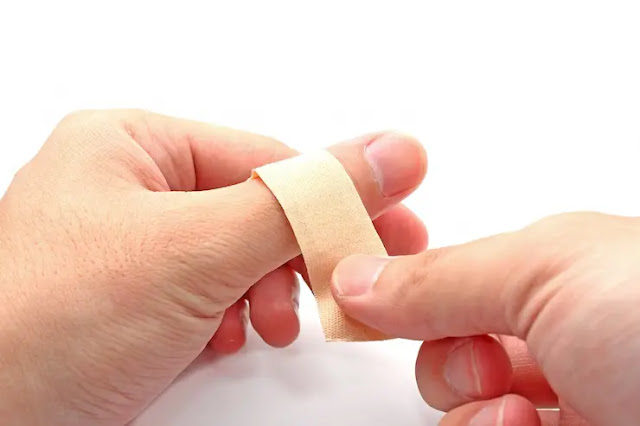The length of time for wound healing for each person is different. This is generally influenced by several factors, such as the type of wound, cause, and medical history of the person who has the surgical wound.
The wound-healing process on the skin goes through several stages. Wounds can take a long time to heal if one or more of these stages is disturbed. The more illnesses suffered and the more severe the condition of the wound, the longer the healing time will be.
If the condition of the wound is clean and light, the wound will usually heal gradually and be covered with new skin cells in the 2nd to 4th week. The wound healing process continues until the 12th week to get healthy skin. After that, scar tissue or scars will form.
The final process of wound healing is wound maturation. At this stage, the scar will fade slowly and may last several years, depending on the type of wound.
How to Heal Surgical Wounds?
Unlike the healing of minor wounds, the process of healing surgical wounds is divided into three types, namely:
Primary wound healing
Primary wound healing is healing in clean wound conditions and all layers of skin are covered (after wound suturing). Primary wound healing takes a short time and leaves little scarring.
Healing of surgical wounds where the incisions were made by the doctor during surgery is included in this category.
Secondary wound healing
Secondary wound healing is the healing of dirty or contaminated wounds. In this condition, the doctor cannot suture the wound, so that the inside of the wound is closed but the outside is not. This puts the wound at risk for infection.
Tertiary wound healing
Tertiary wound healing is the healing of fresh dirty wounds. First, the wound will be washed and left open for a while to clean, then the wound will be evaluated for several days. If there are no signs of infection, the wound will be sutured.
The healing time for surgical wounds depends on the type of wound healing and the patient's health condition. Generally, clean wounds in children and adults will heal within 2 weeks.
Factors Affecting Surgical Wound Healing
The healing time of a wound can be predicted. However, several factors can extend the duration of wound healing, namely:
Dead skin
The presence of dead skin tissue and foreign bodies in the wound area will slow down the wound-healing process.
Infection
When an infection occurs in a surgical wound, the body will focus more on fighting the infection than on healing the wound. This hinders wound healing.
Bleeding
Bleeding that occurs continuously will make the edges of the wound separate and cannot connect.
Nutritional deficiencies
Lack of nutritional intakes, such as vitamin C, zinc, and protein, can slow wound healing.
Certain diseases
Some diseases, such as diabetes, anemia, or immune system disorders, can slow wound healing.
Smoking habit
Smoking habits will hinder wound healing and increase the risk of wounds failing to heal.
Dry skin
Wounds are more difficult to heal when the skin around them is dry. This is because the various cells involved in wound healing need a moist environment to grow.
Excess weight
In people who are obese or suffer from obesity, fatty tissue under the skin will inhibit blood flow to the wound. This causes the wound to lack oxygen and take longer to heal.
During the wound healing process, take care of the wound according to the doctor's recommendations. Some surgical wound sutures must also be examined again by the doctor after some time to remove the stitches.
The time for healing of surgical wounds varies, depending on the condition of the wound and the body condition. However, if the surgical wound does not heal until the doctor's estimate or if the wound opens again and is bleeding or even festering, immediately consult a doctor for treatment.
